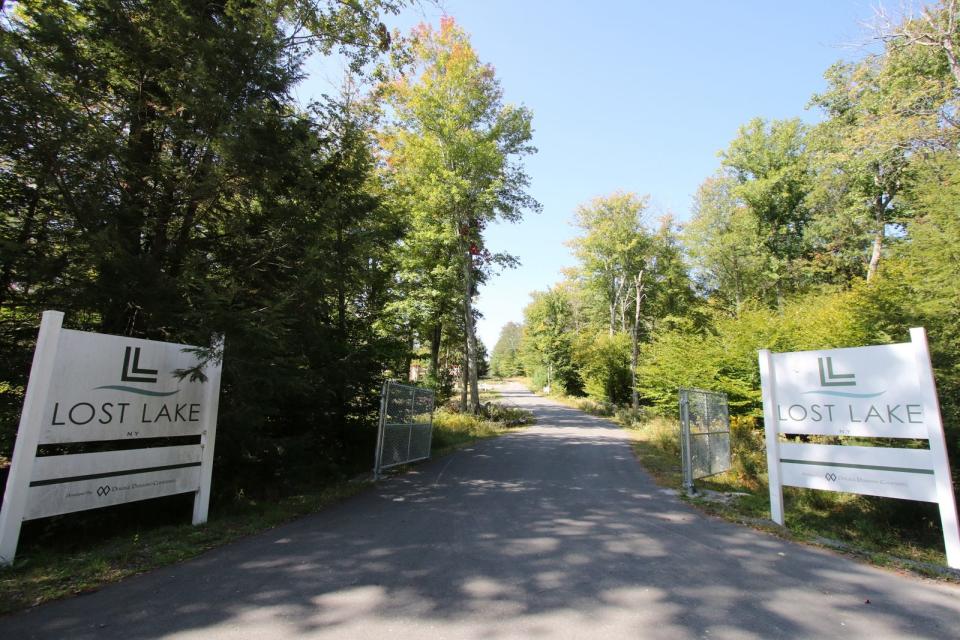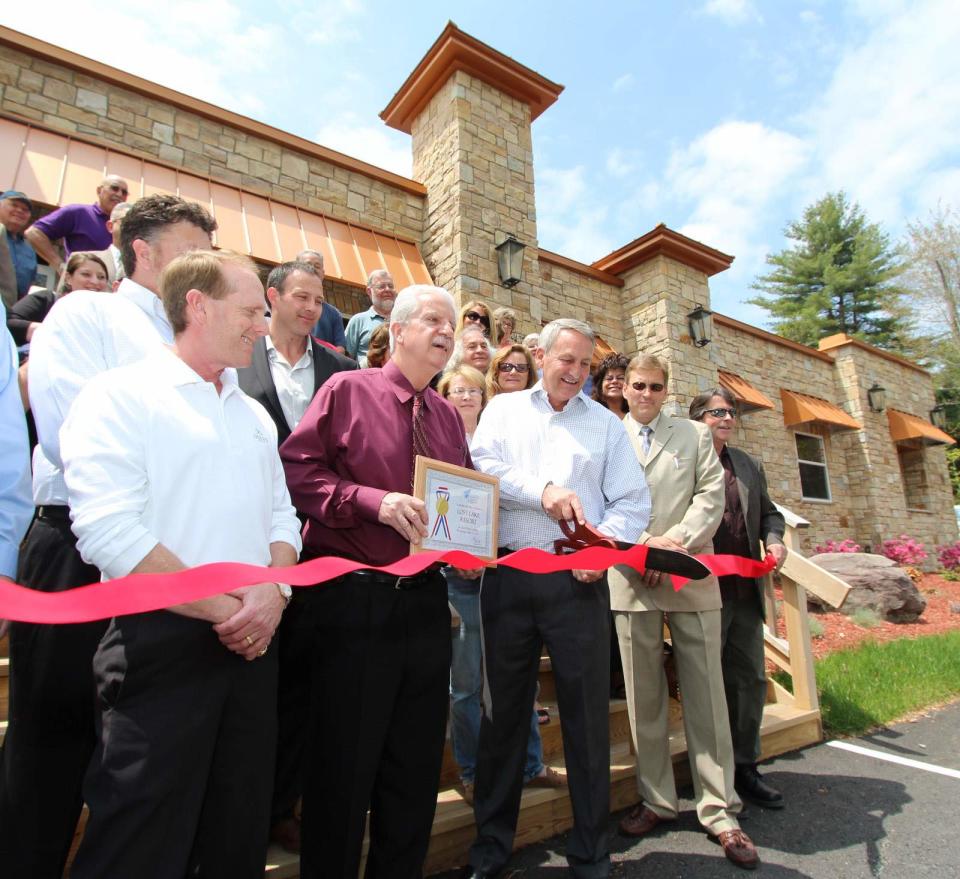Forestburgh officials and developer clash over permits to start 2,600-home project
A developer who bought a vast land tract in Sullivan County with approvals in place to build 2,600 homes has been skirmishing with Forestburgh officials for months over their refusal to issue construction permits.
The town approved two houses in 2020 but rejected later applications, saying the developer who took over the dormant Lost Lake Resort project was set to deviate from the approved plans by building affordable housing instead of an upscale community with an 18-hole golf course.

The developer's attorney says the entire project, including the golf course and other amenities, will be built exactly as approved, and argues that town officials are grasping for excuses to stop construction of homes that will be marketed to Hasidic families.
The feud is playing out on two fronts. Forestburgh's zoning board of appeals is set to decide the fate of 15 building permits the town's building inspector rejected in November and January. And the developer has filed two lawsuits in state court to challenge town consultant payments and demand copies of town officials' emails and other records.
Sold: Developers buy 2,100-acre site of stalled Lost Lake Resort project
Approved: Plans for massive Lost Lake Resort set to proceed in Forestburgh
Proposed: Texas company pitches plans for 2,600-home resort community
Each side is using sharp words to criticize the other's motives.
In a court statement this month, Javid Afzali, a lawyer advising the town on Lost Lake Resort, called one lawsuit "the first salvo in what the Town anticipates will be a multi-year, multi-action effort by Petitioner to strong arm and bully a rural town of about 800 residents into acquiescing to a multi-million-dollar development" after altering the nature of the project.

Steven Barshov, the developer's lawyer, called Forestburgh's permit denial "illegal and shameful" and its reasoning discriminatory.
"The very face of the Building Permit Denial is an overt and express declaration of an unlawful exclusionary land use practice specifically targeted at the Orthodox Jewish community," Barshov wrote in his appeal to the zoning board.
One pending suit claims Forestburgh officials improperly used an escrow account funded by Double Diamond to pay Afzali and a planner to advise them on Lost Lake Resort after the property changed hands. Barshov argues those consultants were used to obstruct the project and demands the town reimburse the escrow account, which now belongs to the new developer.
Town officials say in court papers they have spent about $18,000 of the $21,000 that remained in the account after Double Diamond stopped work. They plan to return $2,100 but contend the remaining charges were legitimate.
Growing a small town
The plans for a community far larger than the existing population of the rural Catskills town date back to 2008, when a Dallas-based developer pitched its resort proposal for a 3.3-mile swath of land off St. Joseph's and Cold Spring roads.
Town officials approved the plans in 2013 and joined supporters at a ribbon-cutting celebration for the project the following year. Double Diamond Companies then began installing water and sewer lines and building roads, but dropped Lost Lake Resort after selling only about 150 housing lots, too few to continue. No houses had been built.
In July 2020, a pair of limited-liability companies bought the 2,100 acres for $9.5 million. Mordechai Halberstam, a builder who lives in the Rockland County village of Chestnut Ridge, told the Times Herald-Record two months later that he and his family had paid $13.3 million in all for the property and related assets.
"They didn't have buyers, basically," Halberstam said of Double Diamond at the time. "They just walked. That's our business: when people walk, we walk in."
The town approved the new owner's first two applications to build 1,880-square-foot houses in November 2020. But it later withdrew one permit, after discovering the developer didn't own that lot yet, and rejected the third application in November 2021 after months of back-and-forth with the developer.
In a letter to town officials a month earlier, Barshov, the developer's lawyer, said his client will offer "reasonably priced and affordable units to Hasidic Jewish families who have a very significant unmet demand for such units." He warned his client would sue over civil rights and fair housing claims if the town continued its "obstruction and delay" in issuing permits.
The reference to affordable housing in that letter was then used to deny the permit. Glenn Gabbard, the town building inspector, wrote that Barshov's description differed from the upscale resort the town approved and didn't say if "other project components will remain the same or whether anticipated impacts of an affordable housing community were contemplated or reviewed prior to the 2013 approval.”
Gabbard echoed that objection in January when he declined to review 14 new permit applications to build homes ranging from 3,120 square feet to 4,800 square feet.
Barshov argued in his appeal that the pricing of the homes was irrelevant and that the town couldn't legally deny permits if Halberstam chose to sell homes for "less than the maximum profit."
Lost Lake Resort was approved to be built in seven phases, with 400 houses and the first nine holes of the 18-hole golf course in the first phase. Amenities to be added in future phases include a hotel, a restaurant, a clubhouse, a pool and a driving range. More than half of the 2,600 homes are supposed to be seasonal or secondary homes, according to Afzali, the town lawyer.
Chris McKenna covers government and politics for the Times Herald-Record and USA Today Network. Reach him at cmckenna@th-record.com.
This article originally appeared on Times Herald-Record: Town officials, developer clash over permits for 2,600-home project
